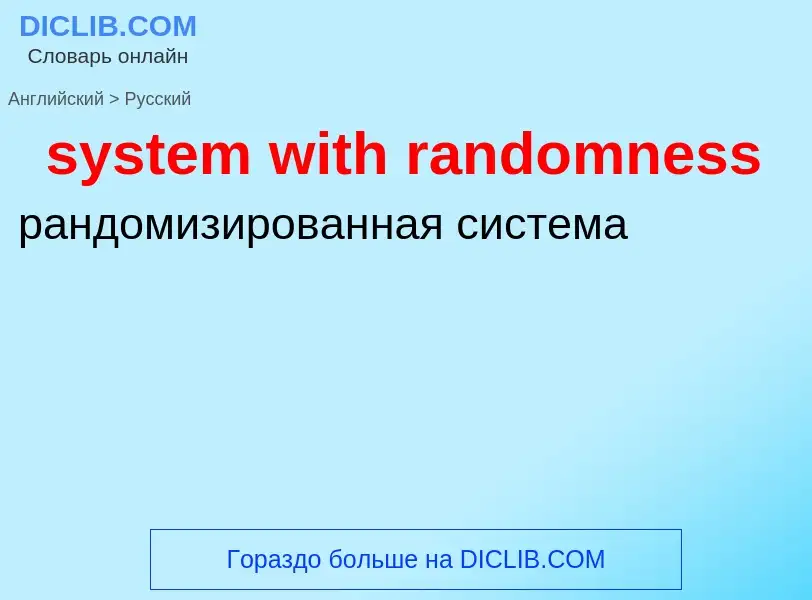Tradução e análise de palavras por inteligência artificial ChatGPT
Nesta página você pode obter uma análise detalhada de uma palavra ou frase, produzida usando a melhor tecnologia de inteligência artificial até o momento:
- como a palavra é usada
- frequência de uso
- é usado com mais frequência na fala oral ou escrita
- opções de tradução de palavras
- exemplos de uso (várias frases com tradução)
- etimologia
system with randomness - tradução para russo
[wið]
общая лексика
ссориться
синоним
предлог
общая лексика
указывает на
совместность (часто together with) (вместе) с
взаимоотношение с
пребывание в доме у кого-л. у
работу где-л. или у кого-л. в
смешивание, сочетание, добавление (вместе) с
к
средство на
за
наличие чего-л. и кого-л. у
при
с (собой)
"meat" begins with"m" - (слово) meat начинается с m
дополнительные обстоятельства или моменты причём
условия совершения действия в условиях
когда
при том
что
(по отношению) к
для
совместимость или сопоставимость наравне с
причину, источник чего-л. от
из-за
указывает на движение в том же направлении по
что касается
имеет уступительное значение (обычно with all) несмотря на
Wikipédia
A randomness test (or test for randomness), in data evaluation, is a test used to analyze the distribution of a set of data to see if it can be described as random (patternless). In stochastic modeling, as in some computer simulations, the hoped-for randomness of potential input data can be verified, by a formal test for randomness, to show that the data are valid for use in simulation runs. In some cases, data reveals an obvious non-random pattern, as with so-called "runs in the data" (such as expecting random 0–9 but finding "4 3 2 1 0 4 3 2 1..." and rarely going above 4). If a selected set of data fails the tests, then parameters can be changed or other randomized data can be used which does pass the tests for randomness.

